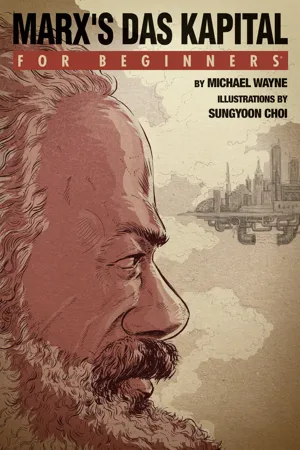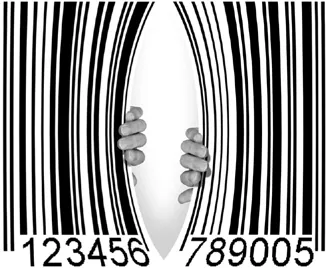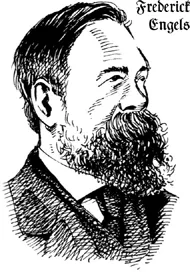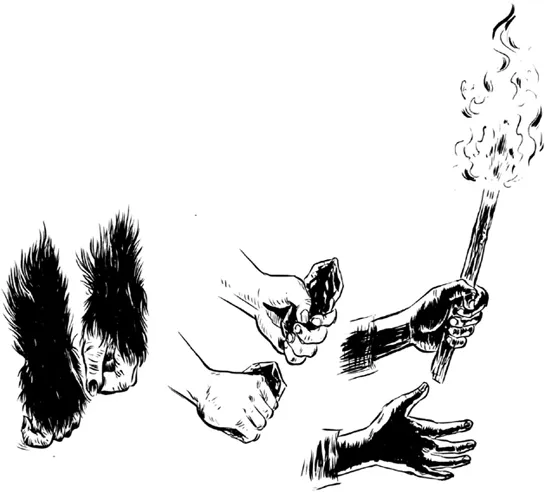![]()
chapter one: the commodity
Marx began his critique of capitalism with something very ordinary and everyday. The commodity. The first words of Das Kapital are:
The wealth of those societies in which the capitalist mode of production prevails presents itself as an immense accumulation of commodities, its unit being a single commodity. Our investigation must therefore begin with the analysis of a commodity.
—Marx, Das Kapital
Everyone knows that a commodity is something that is bought and sold, or traded for something else thought to be of equal worth.
And it is plain that commodities are bought and sold because they are useful for people.
So a commodity has two sides to it. It has a use value and an exchange value. An exchange value expresses itself as the price at which the commodity exchanges.
This then is our opening definition of a commodity: It is something that is bought and sold because it is useful for people. Expressed like this, there does not seem to be a problem. The use-value side of the commodity and the exchange-value side seem to fit snugly together.
A commodity appears, at first sight, a very trivial thing, and easily understood. Its analysis shows that it is, in reality, a very queer thing, abounding in metaphysical subtleties and theological niceties.
—Marx, Das Kapital
If at first sight the commodity appears a trivial, easily understood thing, Marx will show that within capitalism, things are not as they appear.
Marx’s analysis reveals how, in fact, use value and exchange value are at war with each other within modern capitalism.
Let us first consider the use-value side of things. Think about a random sample of products: a teabag, a hammer and a pair of binoculars.
The first thing you notice about them as use values is how different their uses are. Indeed they are quite unique to each product.
Try using a teabag to bang in some nails, or a hammer to magnify a distant object and you are unlikely to have much success.
The utility of a thing makes it a use value. But this utility is not a thing of air. Being limited by the physical properties of the commodity, it has no existence apart from that commodity.
—Marx, Das Kapital
As well as being distinct from each other, the unique uses these products have depends very much on their physical structure.
Imagine making a cup of tea with a teabag that did not have any perforations.
Or using binoculars that did not have any lenses inside them.
So the usefulness of these products relates to their precise physical structure and combination of elements. Again this all points to the unique and specific qualities they have for being useful.
Where do the materials for products come from? Obviously they start life as natural materials in some form or another. Tea comes from plants, their bags a blend of wood and vegetable-based fibers. A hammer made from steel comes from iron and carbon combinations. Glass necessary to make lenses also derives from such natural materials as sand and lime.
Of course nature does not spontaneously transform itself into these handy products that make our lives better, more comfortable and more developed. This is a transformation – almost magical in some ways – that is produced by HUMAN LABOR.
Labor is, in the first place, a process in which both man and nature participate, and in which man of his own accord starts, regulates, and controls the material reactions between himself and nature. He opposes himself to nature as one of her own forces, setting in motion arms and legs, head and hands, the natural forces of his body, in order to appropriate nature’s production in a form adapted to his own wants. By thus acting on the external world and changing it, he at the same time changes his own nature. He develops his slumbering powers and compels them to act in obedience to his sway.
—Marx, Das Kapital
So use value has its origins in nature and human labor. And this is true throughout human history – not just the recent history of capitalist production. Human beings have always produced use values from natural raw materials. And this process of production has in turn developed us as creative, intelligent human beings.
The labor process of human beings is quite different from the instinctual activity that governs animals.
A spider conducts operations that resemble those of a weaver, and a bee puts to shame many an architect in the construction of her cells. But what distinguishes the worst architect from the best of bees is this, that the architect raises his structure in imagination before he erects it in reality. At the end of every labor process, we get a result that already existed in the imagination of the laborer at its commencement. He not only effects a change of form in the material on which he works, but he also realizes a purpose of his own that gives the law to his modus operandi, and to which he must subordinate his will.
—Marx, Das Kapital
Because human labor is not directed by instinctual drives but by creativity and imagination, human beings can be inventive. They can adapt to their environment and adapt their environment. They can discover things about themselves and the natural world around them. All this opens up the possibility of making a human history distinct from the history of nature.
The development of the human hand as a tool-making organ was decisive in the development of a human history. As Marx’s lifelong friend and collaborator Frederick Engels wrote:
The first operations for which our ancestors gradually learned to adapt their hands during the many thousands of years of transition from ape to man could have been only very simple ones. The lowest savages … are nevertheless far superior to these transitional beings. Before the first flint could be fashioned into a knife by human hands, a period of time probably elapsed in comparison with which the historical period known to us appears insignificant. But the decisive step had been taken; the hand had become free and could henceforth attain ever greater dexterity; the greater flexibility thus acquired was inherited and increased from generation to generation.
—Frederick Engels,
The Part Played By Labor In The
Transition From Ape To Man
So labor is the very basis of what and who we are as human beings. The unique use values that labor produces derive in turn from the specific qualities which particular kinds of labor bring to the raw materials they work on.
If you want to make paper then it simply will not do to treat wood as if it were iron ore and put it in a hot furnace. Labor must work with the particular qualities which different natural materials have.
It will be important to remember the hymn to human creativity embodied in labor that Marx writes about here when we get to consider what happens to human labor under capitalism.
Now, human labor produces two types of products. One type functions as tools or raw materials that will be used in further acts of labor. The other type produces final products that can be consumed or used by individuals to reproduce themselves – whether that is a roof over their heads or a bite to eat.
Tools and raw materials that have already been worked upon by human labor remain only latent or potential use values. They require further labor to make those use values a reality.
Living labor must seize upon these things and rouse them from their death-sleep, change them from mere possible use values into real and effective ones. Bathed in the fire of labor, appropriated as part and parcel of labor’s organism, and, as it were, made alive for the performance of their functions in the process, they are in truth consumed, but consumed with a purpose, as elementary constituents of new use values, of new products, ever ready as means of subsistence for individual consumption, or as means of production for some new labor process.
—Marx, Das Kapital
Marx’s argument that living labor is required to realize the potential inherent in tools (including advanced machinery) or raw materials will be very important later on for his analysis of capitalism.
Finally we should note that although labor is absolutely central to what Marx called our “species being,” labor is in turn dependent on nature...





